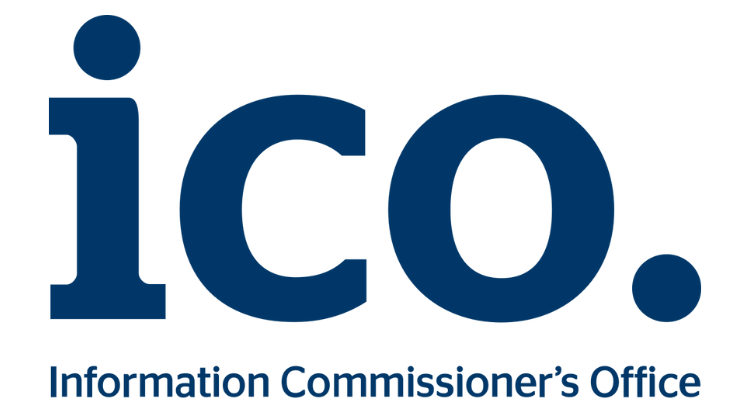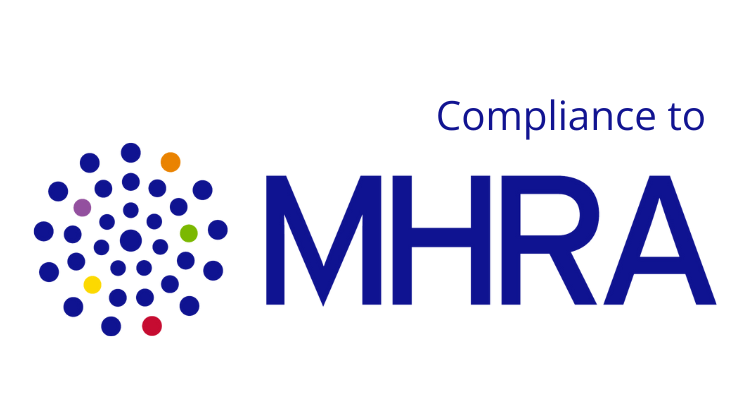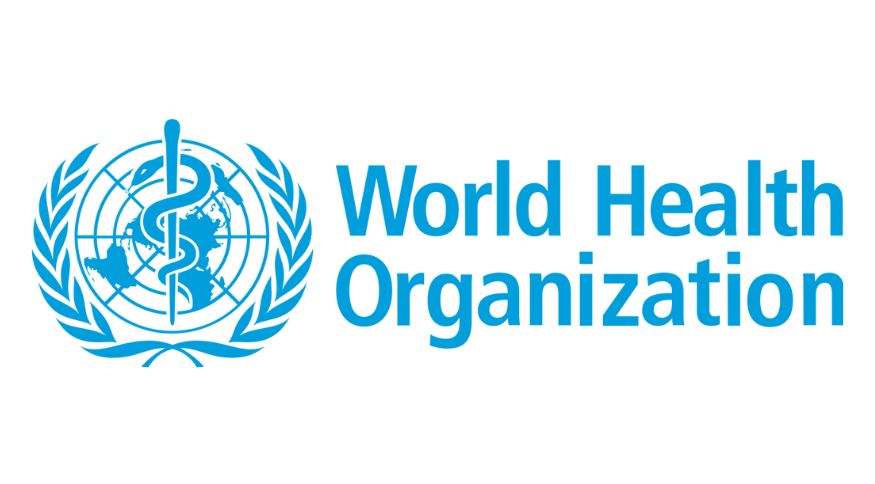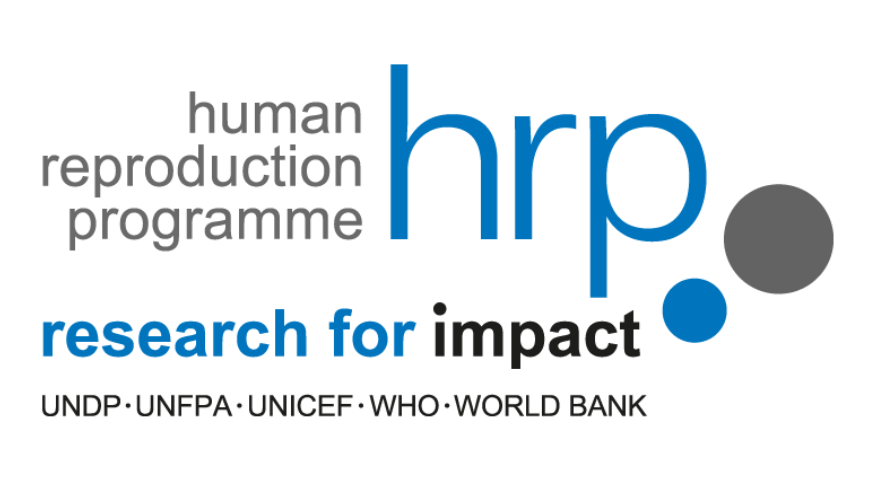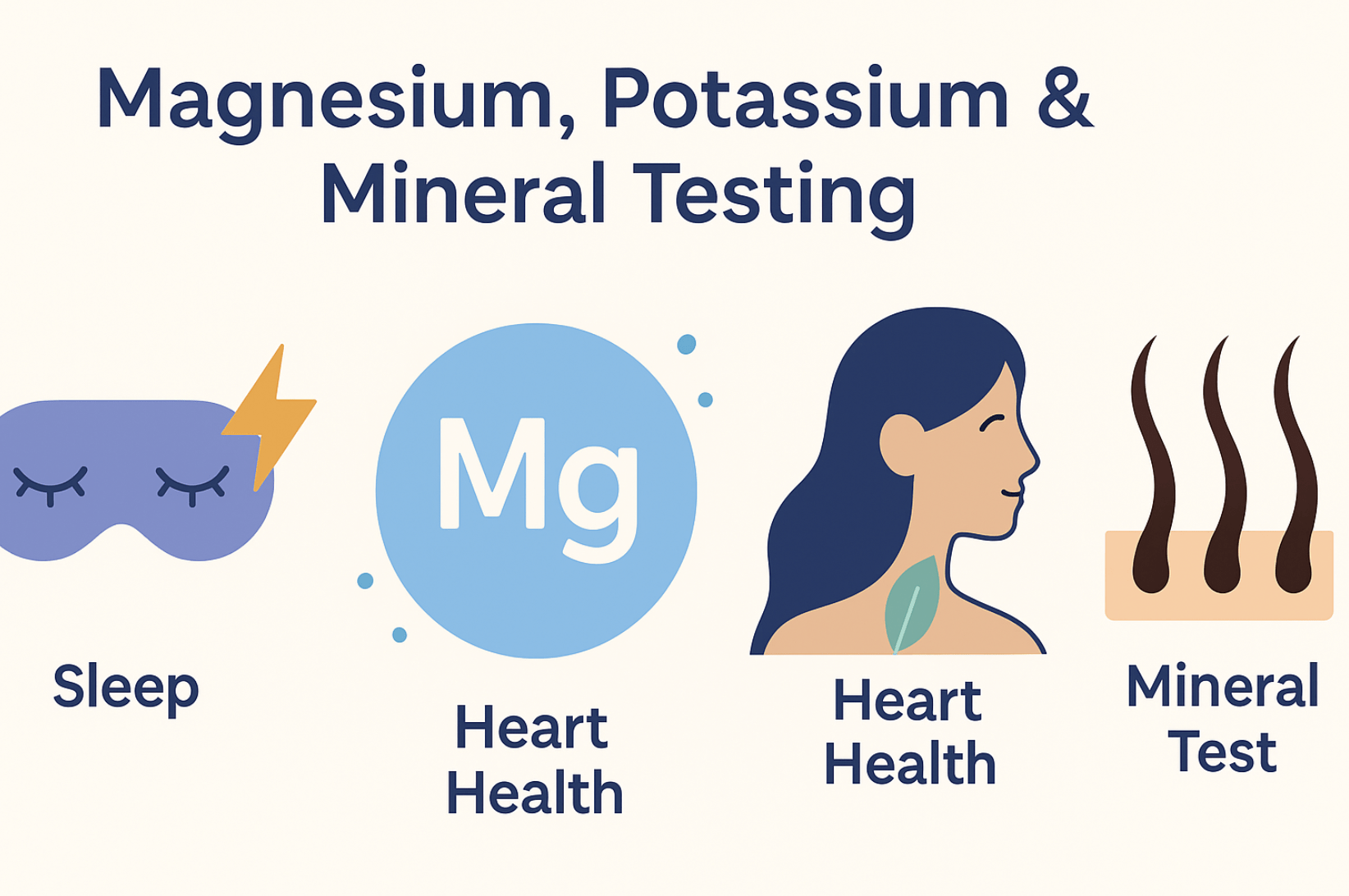
Magnesium, Potassium & Modern Health: Why Londoners Are Suddenly Talking About Minerals – And Why Testing Matters
Reviewed by Dr Lauren Holland, Clinical Lead – Marylebone Diagnostic Centre, London
Results within 24–42 hours (blood) | Hair analysis in ~14 days | QC-validated accuracy
Londoners are searching more than ever for information about magnesium, potassium, and essential minerals. Social media, health journalists, and medical experts are discussing their role in sleep, stress, muscle function, heart health, and energy.
Recent coverage in Verywell Health, The Independent, and BBC platforms highlighted how magnesium supports muscle relaxation and sleep, and how it works alongside potassium to support cardiovascular function.
But here is the crucial message:
Minerals are powerful – but guessing and supplementing blindly is not the same as testing and treating scientifically.
At Marylebone Diagnostic Centre in Baker Street, London, we see a growing number of patients whose symptoms, diets, or supplement routines suggest mineral imbalance. With proper testing, early lifestyle support, and cardiac screening when needed, patients feel informed, confident, and safe.
What Magnesium and Potassium Do in Your Body
Magnesium – Over 300 Processes in the Body
Magnesium plays essential roles in:
- Muscle relaxation and function
- Nervous system balance & stress response
- Energy production in cells
- Bone health and vitamin D activation
- Sleep quality & regulation
- Preventing abnormal heart rhythms
Potassium – Heart & Nerve Conductor
Potassium helps regulate:
- Heart rhythm
- Blood pressure
- Nerve impulse conduction
- Muscle contraction
- Fluid balance
Why They Matter Together
Medical research shows magnesium helps cells manage and retain potassium. If magnesium is low, potassium can drop – leading to fatigue, cramps, palpitations, and weakness.
So, if someone supplements potassium but ignores magnesium, they may miss the root cause.
Signs of Mineral Deficiency or Imbalance
Symptoms may include:
- Muscle cramps or twitching
- Anxiety, stress sensitivity
- Poor sleep or restless legs
- Fatigue or low energy
- Premature heart beats or palpitations
- Headaches
- Tingling sensations
- Elevated blood pressure
- Mood changes
These symptoms can overlap with thyroid, vitamin, cardiac, and metabolic issues – another reason proper evaluation matters.
Are Supplements the Answer?
London shelves are full of magnesium powders, glycinate capsules, bath salts, electrolyte drinks, and “sleep minerals.” Many help – when used appropriately.
But risk exists too:
- Too much magnesium can cause diarrhoea or, rarely, cardiac issues
- Potassium supplements are risky without supervision
- People with kidney conditions must be cautious
- Combining supplements with certain medications can be unsafe
Testing first protects you.
Why Testing is Better Than Guessing
There are two scientifically valid ways to check mineral status:
1) Hair Mineral Analysis
Detects longer-term trends in magnesium, potassium & trace minerals
Identifies stress-related mineral shifts
Screens for heavy metal exposure
Approx. 14 days
Best for: fatigue, cramps, stress, chronic wellness optimisation, long-term deficiencies.
2) Blood Electrolyte & Cardiac Biochemistry
Provides real-time levels
Checks sodium, potassium, kidney markers, glucose, & cholesterol
Detects cardiac or renal imbalance
Results in 24-42 hours
At MDC, this is offered within the Cardiac Profile – MLCP2, ideal for those with:
- Palpitations
- Chest discomfort
- Blood pressure concerns
- Family history of heart disease
- Fatigue + exercise intolerance
🫀 ECG for Heart Rhythm
Some patients also choose same-day ECG for reassurance. This can detect arrhythmias tied to electrolyte imbalance.
Testing → Insight → Personalised advice → Better long-term health.
Where Do We Get Magnesium & Potassium From?
Magnesium-rich foods
- Pumpkin seeds
- Almonds & cashews
- Dark leafy greens
- Whole grains
- Avocado
- Dark chocolate
- Legumes
Potassium-rich foods
- Bananas
- Sweet potatoes
- Beans
- Spinach
- Yoghurt
- Salmon
- Coconut water
While diet matters, modern stress, gut health, medications (e.g., PPIs), alcohol, caffeine, and exercise intensity can impact levels.
⚠️ When to Consider Testing
Test if you experience:
- Muscle cramps or twitching
- Brain fog or fatigue
- Anxiety or poor stress tolerance
- Poor sleep
- Heart palpitations
- High blood pressure
- Frequent exercise with electrolyte loss
- High coffee/alcohol intake
- Perimenopause/menopause fatigue
Athletes, high-stress professionals, and women’s health patients benefit particularly.
What To Expect at Marylebone Diagnostic Centre
| Service | Why It Helps | Time |
| Hair Mineral Analysis | Long-term mineral picture | ~14 days |
| Cardiac Profile (MLCP2) | Electrolytes, kidney function, cardiac markers | 24 – 42h |
| ECG | Heart rhythm screening | Same-day / Next-day |
All testing is:
✅ QC-validated for accuracy
✅ Reviewed by medical experts
✅ Delivered in a calm private clinic
✅ Based at 73 Baker Street, W1U 6RD
Education first. Testing only when appropriate.
- Magnesium and potassium are essential for sleep, stress, muscle and heart function.
- Social media trends reflect real science – but supplements should not be guessed.
- Hair and blood testing together offer the clearest picture.
- MDC provides private mineral, cardiac, and ECG services with rapid results in central London.
Your body runs on chemistry. Let’s check it properly.










